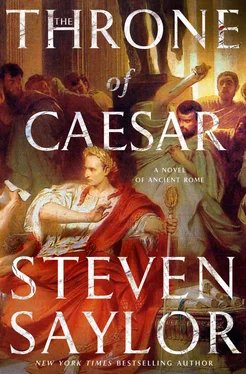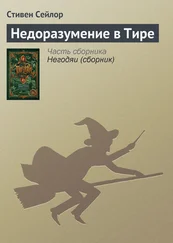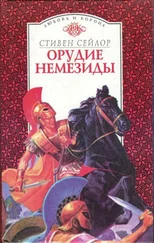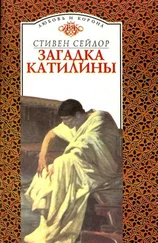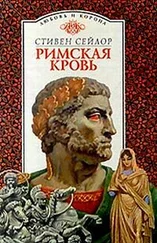Стивен Сейлор - The Throne of Caesar
Здесь есть возможность читать онлайн «Стивен Сейлор - The Throne of Caesar» весь текст электронной книги совершенно бесплатно (целиком полную версию без сокращений). В некоторых случаях можно слушать аудио, скачать через торрент в формате fb2 и присутствует краткое содержание. Год выпуска: 2018, Издательство: St. Martin's Press, Жанр: Исторический детектив, на английском языке. Описание произведения, (предисловие) а так же отзывы посетителей доступны на портале библиотеки ЛибКат.
- Название:The Throne of Caesar
- Автор:
- Издательство:St. Martin's Press
- Жанр:
- Год:2018
- ISBN:нет данных
- Рейтинг книги:5 / 5. Голосов: 1
-
Избранное:Добавить в избранное
- Отзывы:
-
Ваша оценка:
- 100
- 1
- 2
- 3
- 4
- 5
The Throne of Caesar: краткое содержание, описание и аннотация
Предлагаем к чтению аннотацию, описание, краткое содержание или предисловие (зависит от того, что написал сам автор книги «The Throne of Caesar»). Если вы не нашли необходимую информацию о книге — напишите в комментариях, мы постараемся отыскать её.
The Throne of Caesar — читать онлайн бесплатно полную книгу (весь текст) целиком
Ниже представлен текст книги, разбитый по страницам. Система сохранения места последней прочитанной страницы, позволяет с удобством читать онлайн бесплатно книгу «The Throne of Caesar», без необходимости каждый раз заново искать на чём Вы остановились. Поставьте закладку, и сможете в любой момент перейти на страницу, на которой закончили чтение.
Интервал:
Закладка:
“Never say never, Papa.”
I shook my head. “I’ll leave that sort of thing to Eco now. And perhaps to you, Diana. Yes, to you and Davus. I know it’s what you long to do, to follow in your father’s footsteps. I’ve always opposed the idea. But why not? The fact that you’re female shouldn’t stop you. You have the brains. He has the brawn. But your dear father shall be retired, here only to give you advice. Perhaps I’ll never leave this house.”
“Except to attend meetings of the Senate, of course.”
“Must I? I suppose I’ll have to make an occasional appearance, if only for the sake of my progeny. Hopefully, Senator Gordianus won’t get into as much trouble as did Gordianus the Finder! I think I shall spend as many hours as I can here in the library, and in the garden, when the weather permits, dictating my memoirs.”
“Dictating them to whom, Papa?”
“You put your finger on the problem: At present I own no slave suitable for such a task. I suppose I’ll have to shop around to find a reasonably priced scribe who not only can spell but can also keep his mouth shut. Perhaps Tiro can help me fine such a slave.…”
“But Papa, why purchase a scribe when you have me?”
“You, Diana?”
“Why not me? I’ve learned Tiro’s shorthand. I can write as fast as you can dictate. You know my spelling is excellent; better than yours, anyway. And I can also correct any grammatical errors you make, even as I’m writing.”
“Grammatical errors?”
Diana winced. “Papa, you may have learned your Greek from Antipater of Sidon, but your Latin … well, it’s not the most elegant, is it? But never fear, I can fix that.”
I raised an eyebrow. “Perhaps I should ask Meto for an editorial polishing. Or Tiro. But I’m sure they’ll both be much too busy—”
“Why ask either of those two, when you have me? My Latin is every bit as good as theirs.”
I scoffed. “No woman ever wrote a book, Diana.”
“What about Sappho of Lesbos?”
“A handful of poems, quite famous, to be sure; the exception that proves the rule. No woman ever wrote a history or a memoir.”
“Or at least no woman ever got credit for doing so.”
I looked at her steadily. “You make the project sound like a collaboration. My memories, your deathless prose.”
“Deathless? You tease me, Papa, but why not? If you can tell an interesting story, and if I can add a bit of luster to the language, then who knows—perhaps your memoirs will be read by your children’s children, and by their children as well.”
“You forget that even the best books are terribly vulnerable. I saw a considerable portion of the Library at Alexandria burned to ashes when Caesar was besieged in the royal palace.”
“And you were there, with Caesar, and with Cleopatra. Yes! That’s just the sort of story you must include.”
“My point is about literary immortality. I know how easily mere parchment and papyrus fall prey to fire and water and mold, war and the whims of thoughtless men. Not to mention hungry insects! The prose may be immortal, but the papyrus is not. Look at what happened to Cinna’s final masterpiece, now gone forever.” I shook my head. “Who knows what documents will be lost to future generations? Can you imagine a world without Sulla’s blood-drenched memoirs, or Caesar’s brilliant war diaries? Who knows, perhaps all that survives the ravages of time will be scroll upon scroll of those long-winded speeches of Cicero’s, lovingly transcribed by Tiro—and ours will be known as the Age of Cicero, seen through his eyes alone. ”
“Or perhaps only your memoirs will survive, Papa, and this will be the Age of Gordianus.”
I laughed.
“Stranger things have happened, Papa.”
“I can’t think of one! Or perhaps I can. There was that time in Babylon.…”
“No, Papa, don’t speak. Hold that thought. Let me call for a slave to light the lamps, and I’ll collect a stylus and wax tablet, and we can begin.”
“Right here? Right now?”
“Yes!”
I shut my eyes and allowed my thoughts to wander. After a little while I perceived the lighting of the lamps though my closed eyelids. Perhaps, I thought, I should compose my memoirs in Greek. There was something to what Diana said, that my Greek was more formal than my street-learned Latin, having been taught to me by none other than Antipater of Sidon. Should I begin my memoirs with him, and with the voyage we took together to see the Seven Wonders? What remarkable things I saw, what unforgettable people I met on that trip!
But no—it would be best to begin not at the very beginning, but somewhere in the middle of the action, as the Greek playwrights do. Perhaps with the day Tiro first came to my house, and I met Cicero—a turning point in both our careers, and perhaps in the history of the Republic.
When I opened my eyes, Diana sat before me, a stylus in her hand, her eager eyes flashing in the lamplight. “I’m ready when you are, Papa.”
I took a deep breath, and shivered. Again I felt it, that prickling sensation for which I was sure the Etruscans had a word, never mind that it eluded me.…
“The slave who came to fetch me on that unseasonably warm spring morning was a young man,” I said, as Diana wrote, “hardly more than twenty.…”
D A C APO
AUTHOR’S NOTE
(This note reveals elements of the plot.)
On a balmy evening in April 2014, in the town of Waco, Texas, I received the seed of an idea from which this novel sprouted and grew.
The Classical Association of the Middle West and South was meeting at Baylor University. I was honored to address a plenary session. At a cocktail party in a hotel suite off campus—no alcohol may be served on the Baptist campus—I shared with one of the scholars the dilemma I currently faced as a novelist. In the ongoing sequence of short stories and novels about Gordianus, sooner or later I would have to confront head-on the assassination of Julius Caesar. A problem: Readers of the Roma Sub Rosa series would expect a murder mystery. But surely there was no mystery about the most famous murder in history.
To be sure, at least one crime novel had been written on the subject— The Julius Caesar Murder Case by Wallace Irwin, published in 1935. Irwin, a wisecracking San Francisco newspaperman, had the senators of Rome talk like gangsters in a James Cagney or Edward G. Robinson movie (a decidedly postmodern device that served to show them as the gangsters they literally were). The harebrained plot revolved around the substitution of a ringer for Caesar, allowing the real J.C. to dodge the blades and escape to a quiet retirement—shades of The Godfather: Part III. For about two seconds I actually toyed with stealing Irwin’s twist.
Jack Lindsay fictionalized the end of Caesar in a clever short story called “Princess of Egypt,” included in Come Home at Last (Nicholson & Watson, 1936). Lindsay put Cleopatra’s kid sister Arsino ë at the helm of a plot to kill Caesar, parallel to the conspiracy of Brutus and company. Lindsay’s twist worked well enough for a short story, but wouldn’t sustain a novel.
As a rather elaborate stalling device, following The Triumph of Caesar in 2008 I embarked on what turned out to be a trio of prequels about the young Gordianus and his far-flung travels ( The Seven Wonders, Raiders of the Nile, and Wrath of the Furies ). Taking a break from the straightforward chronology of the series not only allowed me to avoid Caesar’s impending assassination; it also allowed my age to catch up (almost) with that of Gordianus, destined to turn sixty-six shortly after the Ides of March, 44 BC .
Читать дальшеИнтервал:
Закладка:
Похожие книги на «The Throne of Caesar»
Представляем Вашему вниманию похожие книги на «The Throne of Caesar» списком для выбора. Мы отобрали схожую по названию и смыслу литературу в надежде предоставить читателям больше вариантов отыскать новые, интересные, ещё непрочитанные произведения.
Обсуждение, отзывы о книге «The Throne of Caesar» и просто собственные мнения читателей. Оставьте ваши комментарии, напишите, что Вы думаете о произведении, его смысле или главных героях. Укажите что конкретно понравилось, а что нет, и почему Вы так считаете.
